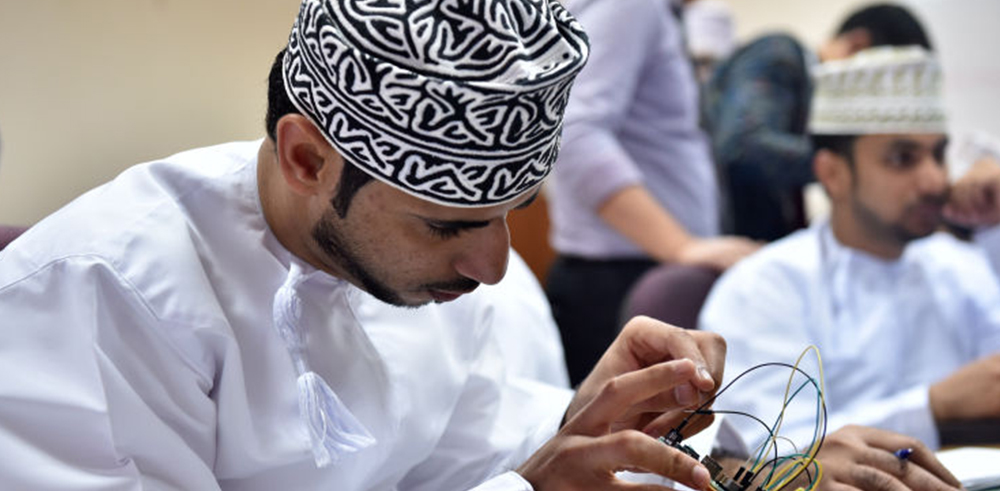Intercultural Education in EFL: what, why, and how?
The Preparatory Studies Centre (PSC) of UTAS-A recently organized a presentation titled "Intercultural Education in EFL: what, why, and how", which was co-presented by Dr. Idris Aladawi and Ms. Areej Aljamaei. The presentation aimed to raise teachers’ awareness of the significance of intercultural competence in relation to their ELT practice.
The presentation had two main parts. The first part revisited recent literature to understand the position of culture in ELT, emphasizing the importance for lecturers to know the type of society their students belong to as it may help in deciding the suitable teaching methods and topics. Ms. Areej brought an example, that if the students are from a collectivist society, the lecturers need to avoid the sensitive topics that might insult them (like undermining their values or cultural practices, challenging or criticizing Islamic beliefs or the political system). The presentation also discussed the meaning of intercultural competence, which was defined as the capability of an EFL learner to effectively communicate in various cultural environments, ensuring that the communication is both effective and appropriate, considering that the term ‘effective’ refers to the achievement of the aim of the communication, whereas the term ‘appropriate’ refers to the unhurt feelings of the communication parties.
The second part of the presentation focused on a PhD study completed recently by Dr. Idris Al Adawi entitled: Intercultural competence in EFL: the beliefs and classroom practices of Omani EFL teachers in a higher education institution in Oman. This part of the presentation began by establishing the significance of intercultural education in the contemporary educational landscape. To provide a solid theoretical foundation, the presentation elucidated the underpinning conceptualization of teacher beliefs, emphasizing their key role in shaping instructional practices and influencing students' intercultural competence.

Then, the two adopted models were introduced—Byram's Model of Intercultural Communicative Competence and Borg's Framework of Teacher Cognition—which served as guiding frameworks for the PhD study.
To capture the intricacies of Omani teacher beliefs of intercultural competence (IC), the study employed a mixed-methods approach, utilizing vignettes and stimulated recall interviews as key data collection methods. The vignettes presented realistic classroom scenarios, while stimulated recall interviews provided a retrospective space for teachers to articulate their thoughts and decision-making processes. The subsequent section unfolded the key findings, aligned with each research question. The presentation concluded with a set of recommendations tailored for educational stakeholders, aiming to enhance intercultural education through targeted interventions and professional development initiatives.






